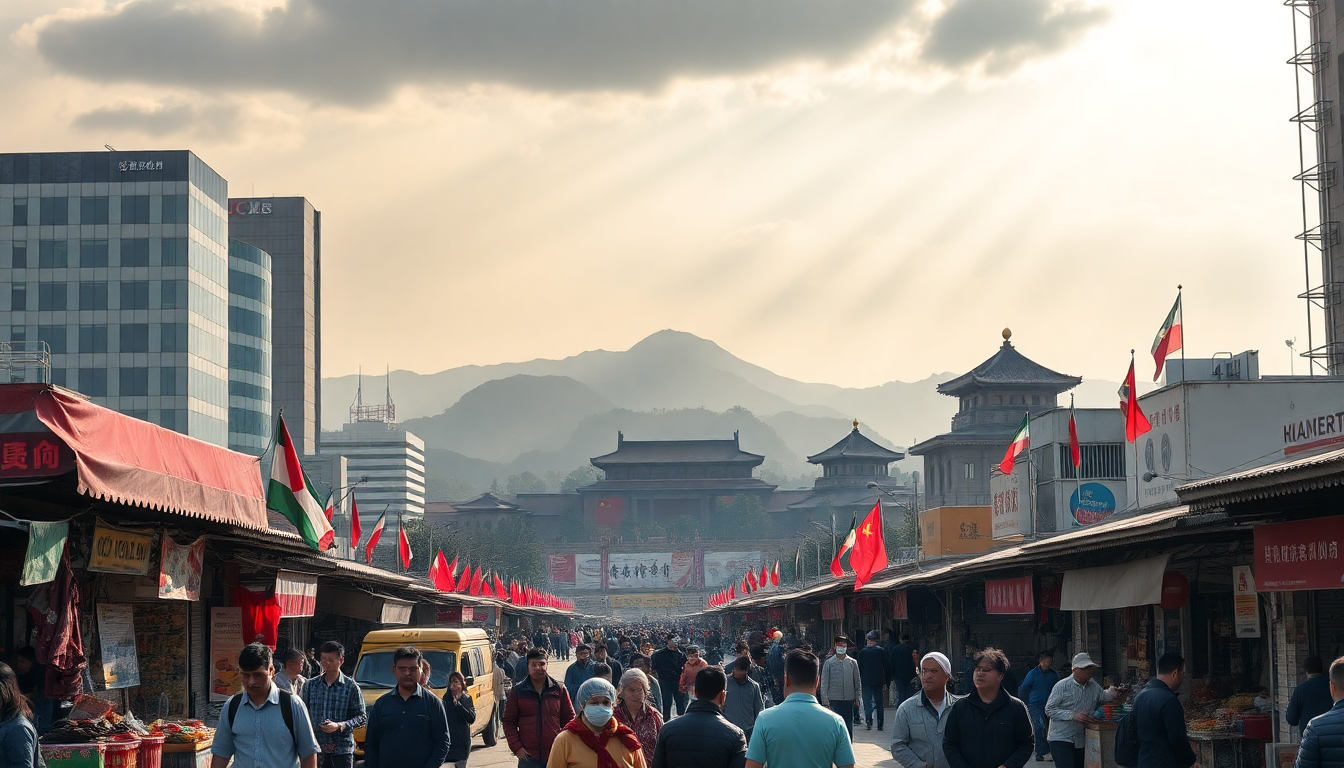Table of Contents
The ongoing tensions between Israel and Iran have captured global attention, especially with the possibility of U.S. military involvement hanging in the air. As the situation escalates, many are wondering: how will China—an influential player in this complex region—respond? With strong economic ties to both Israel and Iran, Beijing finds itself in a tricky position. While it might choose a cautious approach, the need to protect its interests is crucial. This article explores what this conflict could mean for China and how it might shape its strategies moving forward.
The Current Geopolitical Landscape
The geopolitical scene in the Middle East has shifted dramatically in recent days, particularly following Israel’s unprecedented military actions against Iran. These aggressive strikes have sparked questions about the possibility of U.S. intervention, with Washington already mobilizing military assets in the region. China’s foreign ministry has voiced serious concerns about the escalating conflict, urging nations with influence over Israel to take a constructive role. This statement reveals China’s worries about potential instability in a region that is vital for its economic ambitions.
China’s response seems to hinge on maintaining its economic interests while steering clear of military entanglements. The Chinese government has consistently advocated for upholding the principles of the UN Charter, emphasizing the importance of sovereignty and territorial integrity. This diplomatic approach reflects China’s broader strategy of non-interference in foreign conflicts, even as it navigates its intricate relationships with both Israel and Iran.
China’s Strategic Interests
China’s relationship with Iran is complex, rooted in energy needs, trade, and geopolitical alliances. As a major oil importer, Iran’s stability is crucial for China’s energy security. On the flip side, Israel is a key player in technology and innovation, making its relationship just as significant. This duality creates a challenging environment for Beijing, which must tread carefully to avoid alienating either side. Isn’t it fascinating how one country can juggle such diverse interests?
Beijing’s aspiration to act as a mediator in the Israel-Iran conflict showcases its ambition to be viewed as a global power broker. However, this role is complicated by historical animosities and the current geopolitical climate. While China may push for peace talks, analysts believe its influence is likely to be limited compared to the United States, which has traditionally wielded greater power in the region. How will China navigate these challenges while trying to assert itself on the world stage?
Implications for Regional Stability
The fallout from the Israel-Iran conflict doesn’t just affect those directly involved; it has far-reaching implications for regional stability. If tensions escalate further, we could see broader geopolitical consequences that draw in other nations and heighten tensions across the Middle East. China’s cautious approach aims to mitigate these risks while positioning itself as a stabilizing force. It’s a delicate dance, isn’t it?
As the situation unfolds, China’s economic interests will likely steer its actions. The quest for energy resources, trade routes, and market access will remain central to its strategy. Observers are keenly watching to see how Beijing balances these interests with its desire to maintain a neutral diplomatic stance in such a volatile region.
In conclusion, while China may opt for a restrained response to the Israel-Iran conflict, its protective stance on economic interests highlights the complexities of international relations in our rapidly changing world. The outcome of this situation will not only influence the immediate conflict but also shape China’s role in the global geopolitical landscape. What lies ahead could redefine how we view international relations in the years to come.


